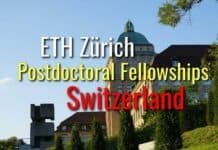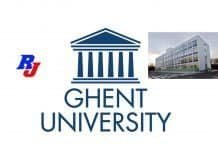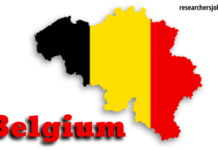Designation/Position- Research Fellow in UCL
University College London, UK invites application for Research Fellow in UCL from eligible and interested candidates
About- Applications are invited for a Research Fellow in the Department of Chemistry. The project will involve the generation of long wavelength light-activated nucleic acids for applications in biology and medicine. We are seeking candidates with a background in synthetic chemistry and ideally some experience with photocages, nucleic acid technologies and biological assays. Research Assistant (RAS) – Chemistry, Chemical Biology and Nucleic Acids – £32,217-£33,958 per annum. Successful candidate will have a PhD degree or be about to be awarded a PhD in the relevant discipline.
Research/Job Area- Chemistry, Chemical Biology or a related discipline
Location- University College London, UK
Eligibility/Qualification–
- The successful candidate will have a PhD degree (or be about to be awarded a PhD) in an area of Chemistry, Chemical Biology or a related discipline.
- Experience with synthetic chemistry, excellent technical skills and a desire to work with nucleic acids are required.
- They will be required to work in a multidisciplinary, collaborative team and have effective written and verbal communication skills in English.
Please note, appointment at Grade 7 is dependent upon having been awarded a PhD; if this is not the case, initial appointment will be at Research Assistant Grade 6B (salary £32,217 to £33,958 per annum) with payment at Grade 7 being backdated to the date of final submission of the PhD thesis.
Job/Position Description-
Duties and Responsibilities
- Applications are invited for a Research Fellow to work in the group of Dr Michael Booth in the Department of Chemistry at University College London. This is an exciting opportunity to join our new research team.
- The project will involve the generation of long wavelength light-activated nucleic acids for applications in biology and medicine. Light is a desirable remote stimulus, which allows for precise, bioorthogonal, and spatiotemporal control. While longer wavelength activation (for instance near-IR) has distinct advantages for future application, for instance higher tissue penetration and lower cytotoxicity.
- The postholder will carry out the synthesis of long wavelength photocages followed by their incorporation into a range of nucleic acid technologies. They will then test their activity in both cell-free and cellular systems. We are seeking candidates with a background in synthetic chemistry and ideally some experience with photocages, nucleic acids, and/or biological assays. Candidates should be able to work independently and have excellent written and oral communication skills in English. They will be expected to work with other group members, including offering supervision and support to undergraduate and postgraduate students.
- This position is funded by The Royal Society for up to 14 months initially. The position is available immediately, but a start date can be negotiated.
- UCL Department / Division- Chemistry
- Location of position- London
- Grade- 7
- Hours- Full Time
- Salary- (inclusive of London allowance)£36,770 – £44,388 per annum
How to Apply-
Apply Online
Last Date for Apply– 18 March 2022
You can get our Regular updates on Telegram also
Find or Post Research Project PositionS – Researchersjob Board
See Also: Motivation Letter for PhD, Postdoc, and Other Research Positions
Whitesmoke Grammar Checker Online – Improve Your Research Writing Skill – Alternative to Grammarly
How to write a literature review: Tips, Format, and Significance
Research Proposal How to Write: Detail Guide and Template







